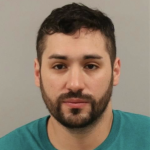“The best colleague any doctor can have is a more fully informed patient and family.” – James J. Rybacki, “The Essential Guide to Prescription Drugs, Update on alcohol”
Hannah straightened her neat shoulder-length brown hair and looked straight at me. I waited to see where she would take me.
Each session began with her focusing us both on an issue that had long been painful. Her therapy had cleared up many life problems. Where would we go today?
“I don’t know what to do. On New Year’s Dad will start drinking during football and be soused by dinner.
“He could yell at my kids for no reason and insult Mom without noticing. We hate it, but he is my father and we can’t tell him to stay home.
“I hate New Year’s Day. My 14-year-old tells me that if his grandpop can drink so can he. And his buddies secretly guzzle beer in the basement of their parents’ houses.
“What can I do? My husband is right. He says talking to Dad won’t help.”
I nodded, wondering to myself if her husband would join her in a session to tackle the problem. I thought maybe he would.
“Hannah, I know you love Hank and admire his intellect. Would he join us to discuss this?
“You have reason to worry about your son learning from your dad. Binge drinking is frequent in adolescents and young adults.
“One in six adolescents binge drink, which puts their bodies and brains at risk for long-term damage. But I bet Hank would work with us on how to help Dad stay in charge of himself for one day.”
Hannah nodded. “Let me see. That is a good idea.”
She looked a bit less panicked, but each holiday season I hear the same concern about binge drinking. “Uncle Jim (or Aunt Betty, or my daughter) gets drunk. It ruins the celebration. What do we do?”
Public health and public law enforcement professionals have statistics to back up their concern. The Distilled Spirits Council of the United States notes that 25 percent of the $49-billion-a-year distilled spirits industry’s profits come from the month of December.
This happens because loneliness and stress are part of our holiday struggles. It is hard to feed guests, go to parties, and spend on giving.
So many of us drink to feel better, but overdrinking wakens our body and changes our personality.
The liver can process about one serving of alcohol per hour. But four (for women) or five (for men) 8-ounce alcoholic drinks within two hours raises the Blood Alcohol Content (BAC) to the point where it is no longer legal or safe for a person to drive in the U.S.
“Alcohol consumption increases during the holidays,” notes the Statesman Journal, specifically mentioning a report issued by Alcohol Monitoring Systems that found that over 450,000 motorists driving under the influence of alcohol increased their drinking rates by 33 percent between Thanksgiving and New Year’s Day, even though they knew they were being monitored around the clock to test their alcohol consumption.
The vice president of Alcohol Monitoring Systems said that such a spike indicated the close degree to which dangerous drinking and holidays (and the holiday season) were intertwined. An official commented that if this is occurring for people being monitored, those not monitored are likely to be even heavier offenders.
If we rethink our drinking pattern and follow two steps, all involved will benefit. The goal is to keep in mind that alcohol is not the purpose of the event. The goal is to enjoy our time together.
Two guidelines help:
1. Alternate each alcoholic beverage with a glass of water or soda. By making every other drink a sparkling water or soda, you’ll have a better, more festive time.
2. “HALT” is shorthand for avoiding events with alcohol when you’re hungry, angry, lonely, or tired.
This holiday season, give yourself the challenge of looking back on the parties with pride that the alcohol was merely one step towards a good time. You’ll be glad you did.
To consider: I know you worry about someone who drinks too much at the holidays. Would you try to help them? If so, how? If not, why not and what can we do to help?
To explore: [12] “How To Know When Holiday Drinking Is a Problem.” (December 2014). US News & World Report. Accessed Dec. 1, 2017. And, [29] “Fact Sheets – Binge Drinking.” (June 2017). Centers for Disease Control and Prevention. Accessed Dec. 4, 2017.
Dr. Coche practices clinical psychology in Stone Harbor and Philadelphia. She invites responses through her website, www.cochecenter.com








